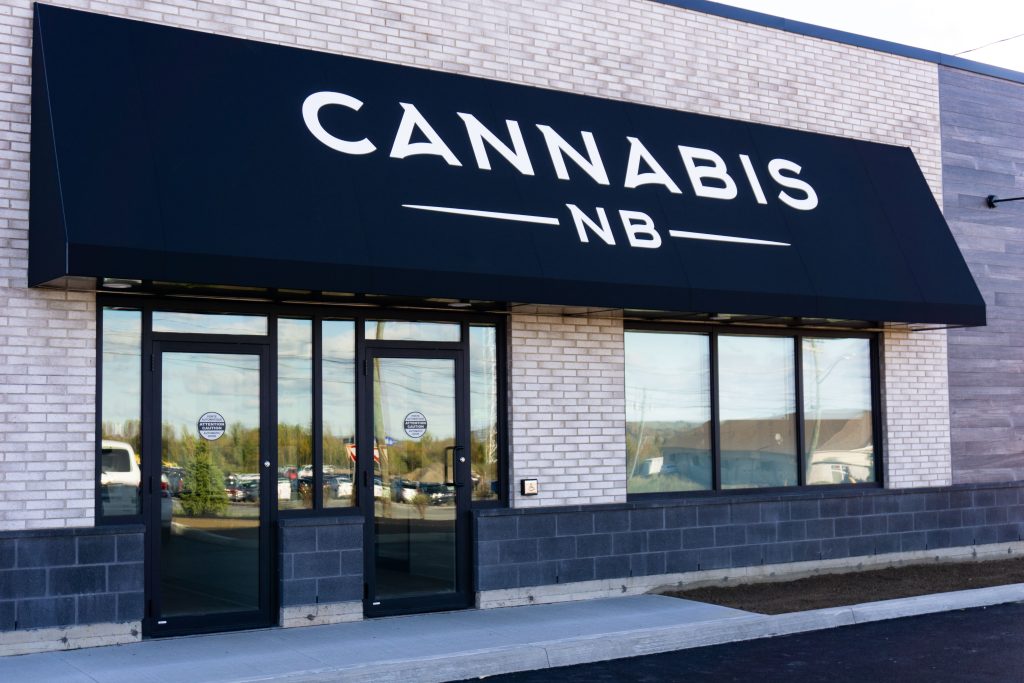Less than a month after cannabis legalization in Canada, advertising remains a highly restricted area. But a criminology expert who has studied the societal aspects of the drug believes that could soon change.
Michael Boudreau, a criminology professor at St. Thomas University, said research tracking use could result in Health Canada relaxing regulations in a few years and allowing mass media advertising of cannabis.
Those ads could look like television commercials for beer and alcohol, which promote specific brands, rather than provincial liquor stores, he said.

Boudreau wrote an article about legalization in New Brunswick where he said cannabis is no longer viewed as a moral threat to Canadian society.
Canada first criminalized drugs in 1908 with the Opium Act. This federal legislation made it an indictable offence to sell, possess or produce opium. In 1923, marijuana was added to the list of illegal substances.
“Once you see an influx of Chinese labourers smoking the drug, opium use became viewed as immoral in a racialized way,” Boudreau said. “The fear was that drugs were being sold to young people and women, particularly white women.”
Under the Narcotic Control Act passed in 1961, which replaced the Opium Act, anyone convicted of cannabis possession could face up to seven years of prison time. Drugs were viewed as a moral threat to Canadian society up through the counterculture movement in the 1970s.
The federal government estimates 2.3 million Canadians use the drug, which has recently developed more widespread social acceptance.
Changes will be data-driven
Boudreau predicts society will come to terms with cannabis ads, similar to public acceptance of alcohol publicity. But he said a loosening of Health Canada’s restrictions would require research indicating that the number of cannabis users has not increased since legalization.
Following legalization in Colorado, marijuana use among teenagers fell to its lowest levels in nearly a decade, according to U.S. federal survey data. The state was one of the first jurisdictions in the world to legalize recreational cannabis in 2014.
But in general, marijuana use has significantly increased in Colorado post-legalization. The percentage of adults in the state who had consumed marijuana in the past month increased from 12.86 per cent in 2012-13 to 16.62 per cent in 2015-16, according to figures from the National Survey on Drug Use and Health.

The Canadian government is also likely to examine impaired driving rates.
Danielle Connell, the research services officer at St. Thomas University, said data will be key to answering questions around cannabis use and promotion. In an interview on The Brunswickan’s podcast Sidebar, she said that the lack of cannabis research is why Health Canada is being so careful.
“It’s not like alcohol, it’s not like gambling, it’s not like tobacco,” Connell said. “It’s not like anything we’ve done before.
Connell said she expects research to explode over the next few years. Both STU and UNB hold federally-funded research chair positions to study the social and chemical aspects of cannabis. Neither positions have been officially hired yet.
“There’s so many unknowns,” she said. “That’s why it’s so interesting.”
New Brunswick breaks federal ad laws
New Brunswick has been forced to make changes after violating Health Canada standards for online marketing. The federal agency prohibits depicting people and associating cannabis with a particular way of life.
The Cannabis NB website showed photos of a group of people smiling and taking a selfie, a woman doing yoga and a man reading a book. It also contained descriptions for activities associated with each type, such as with the Connect strains, which are described as ideal for “the weekly poker game, girls’ night out, or a concert with the whole group.”
The Crown corporation made changes in late October after being advised by Health Canada officials that the website was out of compliance with their standards.

Boudreau said the cannabis industry presents a moral and ethical balancing challenge. Many provinces like New Brunswick want and need the revenue from cannabis sales, but can’t fully promote and advertise under the stringent regulations.
He said Cannabis NB attempted a “subtle” way of advertising.
“Cannabis NB was quite ingenious in their form of advertising and not advertising,” Boudreau said. “The CEO made a public statement telling people about lineups on day one, that it would be busy.”
“It’s almost like telling people they should line up at 4:00 a.m. to get what they want on Black Friday at Best Buy.”

Early cannabis sales in New Brunswick have been sky high, despite complaints that prices are too expensive and far exceed those offered illegally by drug dealers. Sales in-store and online across the province totalled about $950,000 during the first 48 hours of operation.
The Fredericton and Oromocto area has the highest numbers, bringing in over $172,000 in sales during the first two days of legalization. Other regions experiencing high sales were the Saint John and Rothesay area, and Moncton and Dieppe.
“Overall, I am very pleased with how things have rolled out as we enter a new legalized channel of retail,” Cannabis NB CEO Brian Harriman said in a statement. “The sales of the first 48 hours were, overall, what we expected.”
Boudreau said revenue is probably New Brunswick’s driving concern at the moment, but that could change with the new provincial government.
“Arguably the health concerns are perhaps taking a backseat,” he said.





